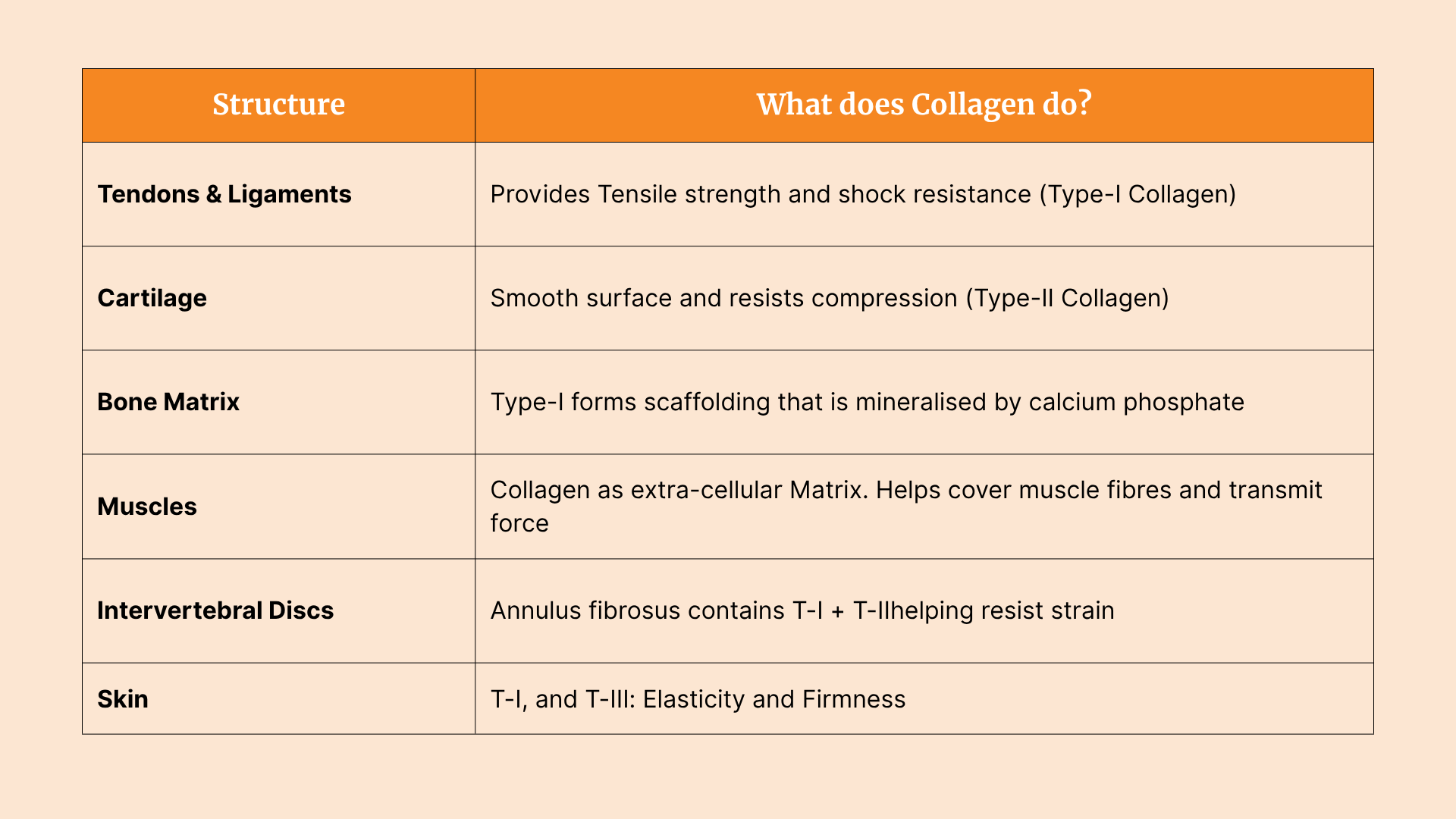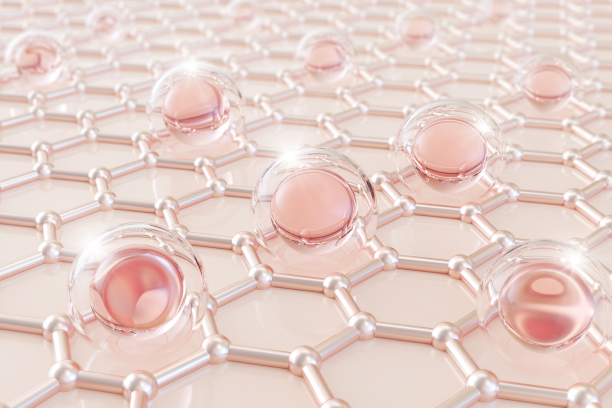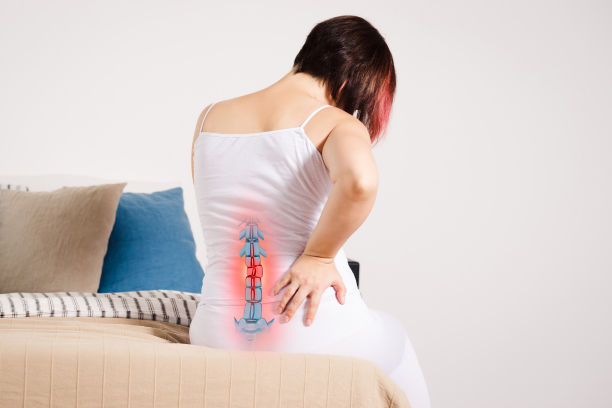You have seen those TV adverts for collagen-enriched creams and moisturiser. They offer to rid you of all skin blemishes, pimples, signs of ageing and even sometimes claim to reverse time. While collagen has received considerable acclaim for cosmetic reasons (and rightfully so), a vast expanse of scientific research is often overlooked when discussing this protein. We spent time with orthopaedic surgeons and biochemists to uncover the hidden secrets of collagen and its role inside the human body, especially in the Musculoskeletal system.
Collagen 101: Not Just for Your Skin
Collagen is a fibrous structural protein. It is the building block of all connective tissue in the body. Its primary functions include providing strength, flexibility and integrity to the body.
Collagen is the most abundant protein in the human body, accounting for approximately 30% of the total protein content. Collagen helps build and maintain the body's structure.
Collagen is made up of Glycine, proline, and hydroxyproline
Collagen is the major component of every vital structure in the body. From tendons to ligaments, and from cartilage to muscles, collagen is everywhere. Below, the table highlights where and what roles collagen plays, along with skin (the one organ that gets associated with collagen the most).

How Your Body Makes Collagen
Collagen is synthesised inside the body in cells called Fibroblasts and is then secreted to form fibrils that cross-link and form the foundational base. And not just for your skin, the process applies to most organs inside the body, especially the MSK system that goes through daily wear and tear.

However, like all processes within the human body, this process requires fuel.
These are “collagen builders”
- Vitamin C: Essential for stabilising collagen structure
- Zinc & Copper: Aids cross-linking
- Sleep & Hormones: Sleep results in the release of growth hormones that support collagen renewal
Ageing significantly slows down collagen formation. Now, collagen breakdown outpaces repair. While this process is evident on the surface, it is also happening inside your body, and your tendons, ligaments, bones, Intervertebral discs, muscles, and cartilage all start to degenerate. Decline in collagen synthesis is inevitable, but it can be delayed. With the proper protocols, diet, and exercise, you can not only support the growth of collagen but also reverse some of the loss.
Collagen Decline Has Severe Impact on Your MSK Health
Collagen forms the primary structural protein in the extracellular matrix (ECM) of musculoskeletal tissues, including cartilage (Type II), Bone (Type I), tendons, and ligaments (Type I).
From tensile strength to mechanical load resistance, collagen forms the framework for cell adhesion and signalling.
With age, oxidative stress, or nutritional deficiency (notably Vitamin C or protein), collagen synthesis declines while degradation increases.
For example, in cartilage, this leads to thinning and fibrillation, impairing shock absorption and joint articulation, as seen in osteoarthritis.
In tendons and ligaments, reduced collagen cross-linking compromises fibre alignment and stiffness, increasing the risk of tears and tendinopathy.
In bone, collagen matrix deterioration precedes mineral loss, weakening the scaffold for bone mineral deposition and resulting in reduced bone toughness and increased fracture risk.
Since collagen also modulates tissue repair and wound remodelling, its decline slows recovery after injury and surgery.
Thus, collagen is not just a passive structure but a dynamic determinant of MSK integrity, adaptation, and resilience.

Diet & Collagen: Indian Context & What Can Vegetarians Do
A plant-based diet does NOT supply collagen directly but contains only the raw materials (like Vitamin C, zinc, and amino acids) needed to make it. Therefore, a plant-based diet can support the synthesis of internal collagen. This can be done through optimised nutrition that focuses on Vitamin C and Zinc. Vitamin C and Zinc deficiency are especially exacerbated among people 60, where roughly 70% people are Vitamin C deficient.

Collagen is found only in animal tissue. Since it is a structural animal protein, it is found in skin, bones, joints, and connective tissues of animals. Commonly available sources are eggs, chicken (with skin), fish (especially skin and bones), and mutton.
What Can You Do? And Why It's Not Just about Nutrition
It is essential to understand what the key factors are driving internal collagen synthesis.

Understand Bio-availability (for diet preferences)

While the debate on dietary preferences continues, one factor that most Indians miss is mechanical stimulation. Collagen isn’t just built through nutrition, it is also stimulated by movement, especially when tissues are exposed to mechanical stress:
- Tendons, ligaments, bone, and cartilage respond to mechanical load by increasing collagen turnover and fibre alignment.
- Exercise signals fibroblasts (collagen-producing cells) to produce more and better-aligned collagen.
- Resistance training, walking, and even moderate impact have been shown to enhance collagen synthesis in both young and older adults.
Remember, collagen is NOT just for your skin but also for your bones, ligament, cartilage, and tendons










